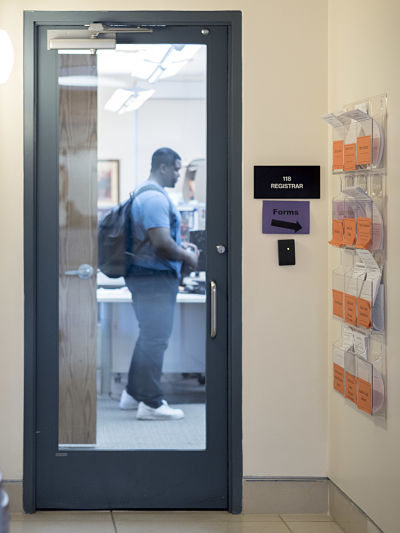The upcoming fall semester will allow students to enroll in previously unoffered classes in a variety of departments; two of these new courses involve going out into the community and tying their experiences back to the subject of the class. Philosophy For Children, taught by Judith Norman, professor of philosphy, as well as Genres in Creative Writing, taught by Norma Cantàº, Murchison professor of humanities, will both involve visiting various areas in San Antonio
“[Philosophy for Children] is a service-learning class where we go to a local elementary school and have philosophy classes with the children there. Part of the reason why I want Trinity students to experience it is because kids know a lot; they have a valuable perspective to offer, and they have no filter. The diversity between a child and an adult’s perspective isn’t something where one is right and the other is wrong, but instead both learn from each other,” Norman said.
Cantຠwill have students in her course take field trips in order to gain insight on various topics; students can then choose to write about their experiences in English, Spanish or a combination of both.
“In the class, we will do a lot of reading, experiencing things and then writing about them. For example, we may take a field trip to the flea market and write about that cultural scene,” Cantຠsaid. “The thematic focus will determine which field trips we go on; if we are doing nature writing, for example, then we will probably go to a park or even just walk around on campus.”
Benjamin Stevens, visiting professor of antiqiuties, is also offering a newly redesigned Afterlives of Antiquity class, which has been organized to make students contemplate the relationship between art forms and the ideas of afterlife and death.
“Journeys into the underworld and thoughts about the afterlife more generally form an important, recurrent trope in literature, film and other art forms. This course gives students materials and methods to raise important questions about how art deals with some of our most fundamental questions by tracing a main line in that tradition,” Stevens said. “It’s also an extension of my scholarly research into how ancient underworlds exert an influence on more recent literature and film.”
Many professors prioritize integrating new courses into Trinity’s curriculum is important, as these new classes reflect changing issues around the world.
“I really believe that the curriculum is an ever-changing animal. It has to change with the times, and it has to change according to the needs and desires that students bring to the university,” Cantຠsaid. “I think that society as a whole in the United States is being transformed right now, and there are many more Spanish-speaking people, there are many more Spanish-speaking readers. Therefore, I think that we need to have more writers who write in Spanish as well.”
These new courses also show how a certain subject can be relevant in a modern setting.
“Classical receptions is a growing and exciting area, and it can be wonderful for students to feel that they are part of research happening right now,” Cantຠsaid.
Norman also believes that philosophy deserves more recognition.
“Philosophy belongs in the university, but it also belongs in the community, where people should be engaging in critical analysis and ethical questioning. This is part of an attempt to put philosophy into the schools and out into the community where it can be doing work and helping people develop relationships and knowledge.”
All three courses will ultimately allow students of all majors and disciplines expand their knowledge about the world around them.
“Classes like this help grow connections between Trinity and the community. Students can start to think of themselves not only as a part of Trinity, but as residents of San Antonio,” Norman said.







